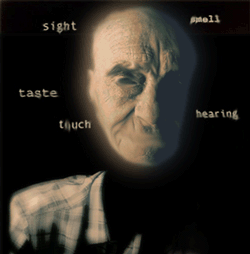
Senior and Seizures Care and treatment can make seizures manageable in the later years By
Carol Milano
What are the symptoms of a seizure? "Watch for unexpected or sudden behavior change that seems to occur out of the blue," advises Steven Schachter, M.D., chairman of the Epilepsy Foundation of America Professional Advisory Board, and Vice President of Education and Training at Harvard Clinical Research Institute. "While it may not look serious the first time, recurrent episodes call for attention. A convulsion is the most recognizable symptom, but complex partial seizure is more common," Dr. Schachter says. Complex partial seizure impairs consciousness: The affected individual appears to be awake, but may be confused or unable to respond. A person suffering a seizure may also stare blankly. While epilepsy is a major cause of seizures, experts say attacks in seniors could also be due to any of the following: stroke, brain tumor, head injury, or Alzheimer's disease. "Even minor strokes can eventually trigger a seizure within a year or two," Dr. Schacter reports. "An MRI can show signs of a stroke that was so mild, the patient never knew about it. The most important thing is recognizing the possibility of seizure and getting a patient into the diagnostic process as quickly as possible."
Your primary care provider should be your first stop. Epileptic attacks can be debilitating and dangerous, particularly when a person is driving, but even while walking. "Most seizures last less than a few minutes. [But] they can be disruptive -- you can injure yourself, be confused for a while, and be afraid to go out or be seen having a seizure. In between, people are completely normal," says Susan Herman, M.D., clinical director of the Comprehensive Epilepsy Center at University Hospital of Brooklyn. Dr. Herman suggests patients wear a MedicAlert tag, especially if they have a history of drug reactions associated with previous attacks. Attacks can be treated with anti-seizure medication, but your primary care physician or specialist will also run diagnostic tests to look for the underlying cause of a seizure. Some of these causes, such as abnormal blood sugar level, might not require anti-seizure drugs. It's not unusual for a senior to have a cause for seizures other than epilepsy. "Meningitis or encephalitis leads to higher risk of seizures later in life," says Dr. Herman. Another thing that can cause attacks is a bad drug reaction to a medication a senior takes. As Dr. Herman explains, "Some medications can cause seizures. That's not epilepsy; it's a drug reaction. Stop the medication and the seizure won't recur." If no outside cause is found for a seizure, epilepsy is often suspected. A neurologist can gather information about the seizure through what a patient recalls, or using the observations of anyone who witnessed the attack. But determining seizure origin is tricky. The usual tests -- electroencephalogram (EEG), MRI, or CAT scan -- cannot make a definite diagnosis. EEG results, for instance, may look normal between seizures. In such cases, Dr. Herman will admit patients to the epilepsy center. "We often need to see an episode to make a diagnosis." This can be achieved through the use of 24-hour video and EEG-monitoring. The good news is, most insurance plans cover such inpatient monitoring. A large number of seizures experienced by seniors -- 50-60 percent -- go undiagnosed, but the attacks can be controlled with the right prescription. Since most anti-seizure medications cause interactions with other drugs, finding the right drug and the right dosage may take some time. "The many side effects of epilepsy medications -- such as imbalance, nausea, memory loss, sedation, dizziness, confusion, and thinking problems -- can be worse in older people," Dr. Herman notes. "Some new treatments are safer, work just as well, and have fewer side effects or interactions with other drugs." For the 2.3 million Americans with epilepsy, Dr. Herman hopes that their seizures will be treated effectively and that they'll manage to avoid the side effects that can be so disruptive to normal life. If you have been diagnosed with epilepsy -- after doctors have ruled out other serious conditions as the cause of your seizures -- and you follow the prescribed treatment, the disease can be a manageable condition. Related links:
Send feedback on this article. |
|||||||||||||||













 esearch on
the aging baby boomer generation has shown that eventually,
almost half of all first-time seizures will be suffered
by Americans over 65. Easily mistaken for a symptom of aging,
attacks often go untreated even though they could signal a serious
illness. Diagnosing seizure disorder correctly can be tricky,
particularly when the senior doesn't notice the attacks.
esearch on
the aging baby boomer generation has shown that eventually,
almost half of all first-time seizures will be suffered
by Americans over 65. Easily mistaken for a symptom of aging,
attacks often go untreated even though they could signal a serious
illness. Diagnosing seizure disorder correctly can be tricky,
particularly when the senior doesn't notice the attacks.